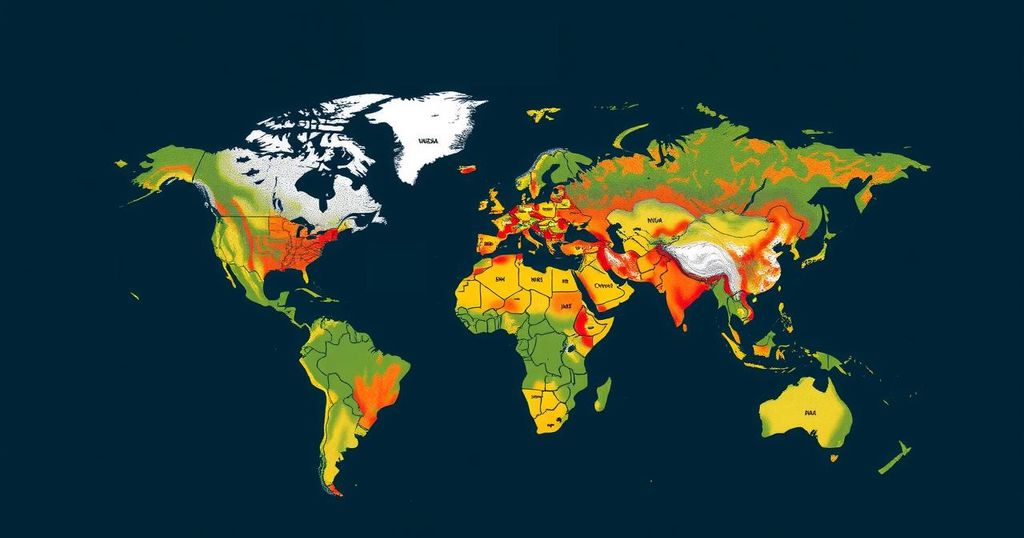The climate situation is worsening as nations convene for COP29 in Azerbaijan. Despite pledges under the Paris Agreement, emissions are projected to peak in 2024, with 2024 expected to be the hottest year on record. The gap between commitment and action raises urgent concerns about climate goals being met.
As the United Nations convenes for its annual climate conference in Baku, Azerbaijan, the situation regarding climate change has become increasingly dire. Approximately 200 nations are gathering, but despite global pledges under the Paris Agreement, these commitments remain insufficient to achieve climate targets. The critical objective of limiting global warming to 1.5 degrees Celsius is projected to be breached within the next few years, underscoring the urgency of the crisis at hand. Experts anticipate that carbon emissions from fossil fuels will set a record high in 2024, following a year in which world leaders pledged to phase out oil, gas, and coal. Concurrently, scientists are forecasting that 2024 will likely rank as the hottest year on record, reflecting the intensifying impacts of climate change. This grim context sets the backdrop for COP29, as reflections on the historical progression of these meetings begin from COP1 in Berlin in 1995, where the groundwork for international climate agreements was first laid. The significant gap between promises and actual emissions highlights the systemic issues in global climate governance. The trend of surpassing carbon targets, along with rising global temperatures, calls for immediate and substantial action to reverse these negative trajectories and abide by international agreements to combat climate change effectively.
The Conference of the Parties (COP) has been an annual forum since 1995 aimed at addressing the global climate crisis. COP1 launched discussions that led to the development of frameworks for international climate action. Over the years, numerous COP meetings, including the COP29 currently taking place, have illustrated the ongoing challenges and failures in meeting established climate goals. The recent history of these conferences has revealed a troubling pattern: instead of decreasing, carbon emissions continue to rise, challenging the commitment of nations to fulfilling their obligations under agreements like the Paris Accord.
In conclusion, the current climate conference in Baku has highlighted an alarming increase in both global temperatures and carbon emissions. The pledges made under the Paris Agreement are not translating into the necessary reductions to prevent significant climate impacts. As the world prepares to surpass critical warming thresholds, the need for decisive action and genuine commitment from all nations becomes more essential than ever.
Original Source: subscriber.politicopro.com






